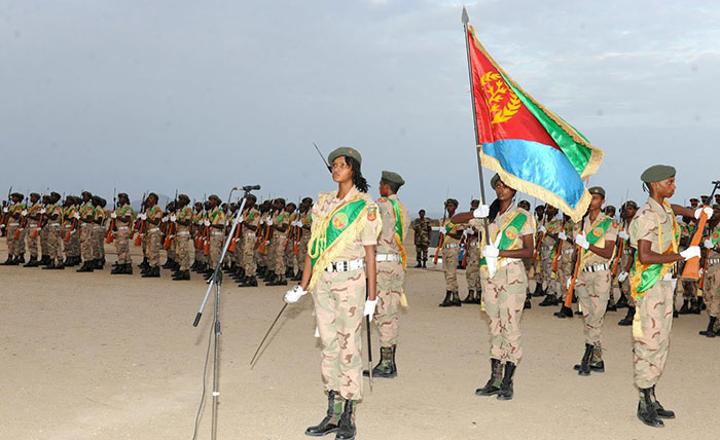Africa-Press – Eritrea. Eritrea joined the community of free nations in 1991 after a long war of liberation. The EPLF, which led the struggle for independence, inherited poor infrastructure and a crippled economy. But it was able to transform itself from a revolutionary movement to a government to govern the war-torn country. As it did in the armed struggle, the EPLF as a government also demonstrated its ability to unite the people around a single purpose.
Besides the wide participation of the people in the struggle, the unity and commitment of the people of Eritrea on national matters was demonstrated in the referendum, with 99.8% votes in favor of independence. The main political concern of the time was not just the declaration of an independent country, but how to turn Eritrea into a viable nation that is harmonious, prosperous, and peaceful.
In Eritrea, nation-building is given the highest priority and the ultimate goal is to make a country of equal citizens and to develop a collective national identity. Measures have been taken to form a strong and united country that Eritreans yearned for during the struggle for independence. Since independence the government’s commitment to socio-economic transformation, political modernization, and the creation of a harmonious society have been successful.
Eritrea, one of the youngest countries in the world, has traveled a long way in nation-building. Robert Kaplan (2003) described Eritrea as a country that has “achieved a degree of non-coercive social discipline,” which is unusual in Africa. Eritrea, as a new country, has not achieved economic prosperity yet, but it has achieved the difficult task of forging a national unity and identity. Eritrea is free from many of the ethnic, tribal, regional or religious tensions that plague many other countries in the world. In 2016, Bronwyn Bruton noted that “despite the virulent tribal and ethnic conflicts plaguing the rest of the region, the Eritrean government appears to have been exceptionally successful in its own nation-building project.”
The government succeeded in developing a political system that advocates solidarity, nationalism, inclusiveness, and social justice. Despite variegated problems, the government has made the state relevant and close to its own citizens. The political system in Eritrea gives more priority to human development, social justice, and nationalism than mere economic growth. The goal is to create an independent, united and prosperous country with citizens controlling and directly benefiting from national resources.
In the last 29 years, the government has taken many measures to clear the ground for national unity and to remove divisive attitudes. In 1991, the government of Eritrea inherited a devastated country with big socio-economic problems. In 1991, the government moved to replicate its revolutionary success in nation-building. Following Eritrea’s independence, it issued a progressive “Nationality Proclamation” in 1992, which allowed the acquisition of Eritrean citizenship not only by birth but also by naturalization, adoption, and marriage.
The introduction of National Service is another successful post-independence measure designed to cement the unity of the people and eradicate sub-national attitudes. National Service has now become a rite of passage for young Eritreans who have to go to Sawa, a melting pot where the youth can learn, develop skills, and increase cross-cultural understanding. The founding fathers of Eritrea understood that the country would survive and flourish only if it is committed to national unity and equality. The National Service has impacted the Eritrean society profoundly since its launch following Eritrea’s independence. It has contributed a lot in enabling young people to grow, develop, and learn to live and work closely with one another, regardless of their background.
Many proclamations were issued to facilitate nation-building and to mold a national identity out of the multi-ethnic society. One major policy initiative that was taken by the government was the reorganization of administrative boundaries. The existing six regional administrative units came into being in 1996 as a result of redrawing the colonial maps, which were based on “divide and rule”. The rationale behind the redrawing of the administrative boundaries was to combat sub-national sentiments and to enhance national unity. Unity in diversity is a key principle of the nation-building process.
The national charter of Eritrea summarizes the national vision in terms of six basic goals and six guiding principles. The six basic goals aim at achieving national harmony, political democracy, economic and social development, social justice, cultural revival, and regional and international cooperation. The six basic principles, which can serve as guidelines, are national unity, active public participation, the human element, linkage between national and social struggles, self-reliance, and a strong relationship between the people and the leadership.
Another important achievement by the government relates to the prevalence of social justice. Essential social and economic infrastructures have been laid down throughout the country. A network of roads, dams, health and education facilities, constructed largely by development workers, have increased people’s sense of belongingness and affiliation to the nation. Many developing countries are known for their failure to shoulder their responsibilities of governance, and designing and executing social and economic programs by depending instead on external agencies. Unaffected by this syndrome of dependency, Eritrea has been able to accumulate enough capacity to initiate and implement programs largely on its own, to mobilize people living inside and outside Eritrea, to provide security for citizens, and deliver essential social services. In Eritrea, unity, equality, social justice and participation of all segments of the society are the bases of all the national programs.
Ethnic-based politics undermines national identity, pride and self-esteem of the people. It divides people by creating mutual suspicion and competition. It is a malicious tactic used to plant divisions among ethnic groups so as to rule them by administering conflicts.
To sum up, the government of Eritrea follows a policy that promotes national unity and strengthens national identity. Anchored in citizenship based politics, Eritrea has achieved a great success in nation building. Citizenship politics has enabled the country to attain a strong national unity and promising socio-economic development. National unity and social justice that leave no room for alienation, discrimination and marginalization are the hallmarks of the government.







